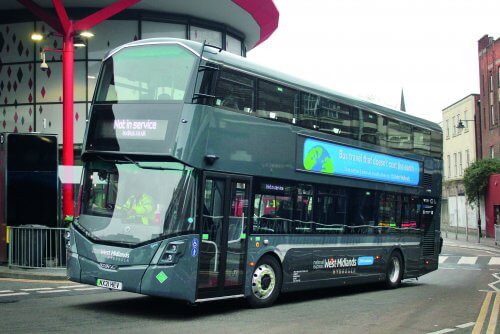Marking five years since Wrightbus unveiled its hydrogen fuel cell technology at London City Hall on 30 November 2016, the company says its fleet of hydrogen-powered buses has prevented more than 1,000 tonnes of harmful carbon dioxide emissions from entering the atmosphere.
The original hydrogen fuel cell bus encompassed a hydrogen fuel cell and a battery pack to power the vehicle to make continuous daily operation feasible. Since then, Wrightbus, having been bought out of administration by entrepreneur Jo Bamford in 2019, has gone on to produce a fleet of hydrogen-powered buses, which first entered passenger service in Aberdeen in January this year. The type is now also in operation in London, Dublin, and Belfast, whilst a further 20 have been delivered to Birmingham. Buta Atwal, Chief Executive of Wrightbus, said: “Wrightbus has a proud history of innovation and technology, which has always been at the core of everything we do. We have led the way in the practical development of clean vehicle technology in buses over many years and will continue to do so for years to come.
“We have already come so far since the launch of the hydrogen fuel cell bus five years ago and we can now see the positive impact our innovation is having. We have been relentless in our commitment to zero-emissions transport, and we will continue to not only invest in that technology but also to press the case for more support for zero-emissions transport and the infrastructure it needs.”


